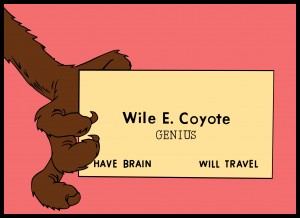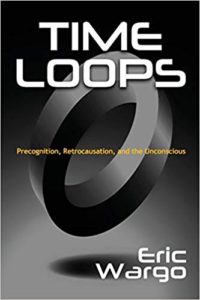Anti-Anti-Tricksters
Over on UFO Conjecture(s), Rich Reynolds takes issue with the notion of “The Trickster” that is being increasingly invoked in ufology:
“Just as Christians and other religious aficionados think Satan or angels are real beings, ufologists like to use The Trickster as a real being, causing some UFO sightings or events. It’s an ignorant stance. Even as God is an iffy reality, The Trickster is so much more so. I would hope that readers here would refrain from stretching credulity to a breaking point by using The Trickster metaphor as an explanation for some UFO events.”
Reynolds is right that the Trickster concept can’t serve as an explanation. But at least in my reading of the topic, including George Hansen’s massive study The Trickster and the Paranormal or books tangentially invoking the concept, like Colm Kelleher and George Knapp’s Hunt for the Skinwalker, the term isn’t being used in a literalistic way to denote a “real being.” Rather it is being used, quite appropriately I think, as a shorthand term for a type of sentience or intention that seems to underlie a wide range of paranormal phenomena (ranging from UFOs to psychic experiences to hauntings) and that has a distinctly ironic, thwarting character. There’s no other term that quite fits the bill as well as “Trickster.”
I don’t see people using the term to mean a literal god or godlike being (a la Coyote or Hermes … or Satan, for that matter) whose purpose and mission is to screw with human affairs. The whole point of using the term is to avoid pinning UFOs’ origins down in all the ways they have been too narrowly pinned down throughout the history of ufology. It is far, far preferable to the term “extraterrestrials,” for instance—which truly is a completely distorting, biasing, pigeonholing rubric that has done untold damage to the field of ufology. (If I could beg ufologists to stop using any term, it would be that one, as there is no actual evidence, in all the millions of UFO encounters since the dawn of recorded history—and how could there be?—that the intelligences responsible, wherever they may occasionally say or imply they originate, are actually from other planets.)
Trickster is a useful term because it leaves the door wide open as to causation and origin while being descriptive of a very particular and peculiar phenomenology of many UFO experiences: the distinct and uncanny sense that there is not only a sentience underlying it but that this sentience can anticipate our actions in order to thwart our efforts at studying it. As an alternative, John Alexander offers the term “precognitive sentient phenomena”:
“The precognitive sentient phenomena concept suggests that there is some external controlling agent that initiates these events that are observed and reported. It appears as though that agent not only determines all factors of the event, but is already (i.e. precognitively) aware of how the observers or researchers will respond to any given stimuli. The agent can be considered like the Trickster that is always in control of the observations. Every time researchers get close to an understanding of the situation, the parameters are altered or new variables are entered into the equation.”
Precognitive sentient phenomena is a good term, but it is a mouthful. Trickster is a handy placeholder and shorthand … that is, pending some kind of a real explanation.
The Trickster does not refer simply to life’s tendency to have ups and downs, as Reynolds suggests in his post, but to something much more specific. Signaling as it does a nod to archetypal psychology, the term registers the possibility (at least) that these phenomena may be linked to our own consciousness or unconscious in ways we don’t yet fathom. Plus, the fact that world mythologies and folklore have always included beings who personify precisely these “precognitive sentient” qualities that are seen again and again not only in ufology but also in parapsychology is itself highly suggestive of something … and I don’t think anyone who uses the term precisely knows what, but it’s a useful fact to keep in the back of our minds.
That said, however, it is good to be wary of such placeholder terms, because they do sometimes end up sticking around long past their due date—and this is especially true of other terms associated with Jungian psychology. “Synchronicity” is such a term, which did not actually denote an original concept (Paul Kammerer had already described essentially the same thing with his notion of “seriality”) and has never been useful in helping us theorize ESP. In a future post I will argue that parapsychologists and “synchromystics” should avoid using Jungian vocabulary, because many of his once-novel terms and metaphors have now become conceptual straightjackets limiting our thinking.
I’m not worried about The Trickster, however, because its application to ufology and other unexplained phenomena is relatively new and harmless, and it’s much better than constantly talking about “ET.” But if he’s still hanging around in 10 or 20 years, that may indeed start to get awkward.






Just use Jung’s alternate title – “an acausal connecting principle.” That is, an a- strictly mechanistically Newtonian causal connecting principle, with the sequential, noninteractive and irreversible interpetation of the nature of time to be understood. What mouthful?